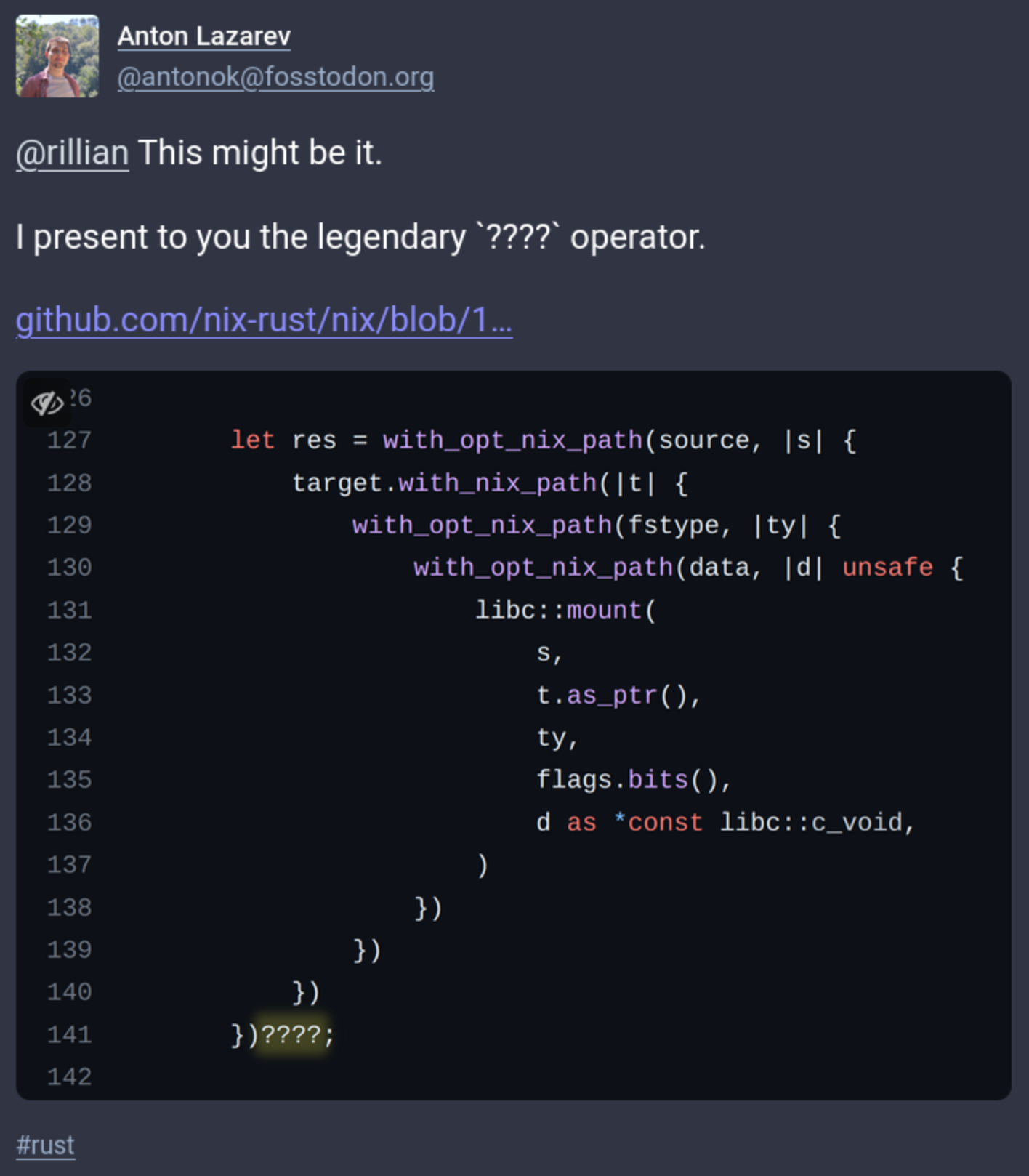this post was submitted on 27 Sep 2023
190 points (97.5% liked)
Rust
6960 readers
7 users here now
Welcome to the Rust community! This is a place to discuss about the Rust programming language.
Wormhole
Credits
- The icon is a modified version of the official rust logo (changing the colors to a gradient and black background)
founded 2 years ago
MODERATORS
you are viewing a single comment's thread
view the rest of the comments
view the rest of the comments

Some applications have a hard zero-alloc requirement.
But that's not the case here, seeing as they have
in the code of with_nix_path. And I think they still could've made it return the value instead of calling the passed in function, by using something like
But I don't know what performance implications that would have, and whether the difference would matter at all. Would there be an unnecessary copy? Would the compiler optimize it out? etc.
Also, from a maintainability standpoint, the context through which the library authors need to manually ensure all the unsafe code is used correctly would be slightly larger.
As a user of a library, I would still prefer all that over the nesting.